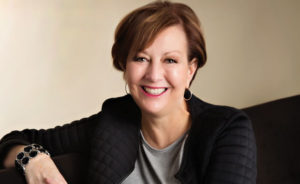 By Karen Sheviak
By Karen Sheviak
Today, it seems like we’ve always known about a genetic component to cancer. But the reality is that it has only been 22 years since the BRCA gene mutation was discovered. Before then, even when many women in one family were getting and dying of the disease at a young age, doctors would often simply say that it was just “bad luck.”
That’s exactly what happened to Annie Parker, who lived in Durham Region for 16 years but now resides in Brampton. She was only 14 years old when her mother died of breast cancer in the 1960s, then her sister passed away from the disease in 1978 before her 40th birthday, and a first cousin died of breast cancer the following year.
“It was all around me. I found it very difficult to put it down to bad luck that our family had so much tragedy,” says Parker.
Parker became a little bit paranoid, almost a hypochondriac, believing that she, too, would get cancer. “I went to the doctor for every hangnail,” she says. “They would say, ‘No, you don’t have cancer. It’s not something that can be passed down from generation to generation.’ Which at that time was thought to be true.”
Before long she was diagnosed with breast cancer at just 29 years of age. Then she survived stage 3 ovarian cancer in 1988. Then in the early 1990s, she got a call from her oncologist at Sunnybrook. Parker was one of the first people to have such an extensive family history of cancer in her practice. “I had had conversations with her about my feelings [about her family’s cancer being genetic], and she said ‘Well, today I can tell you that you’re right. There is something called the BRCA 1 or 2 gene.”
“It wasn’t bad luck. There really was a medical reason why a lot of my female family members were passing away.”
Parker says she was “elated” when she learned of the gene’s discovery. “I didn’t want to say, ‘I told you so,’” says Parker. “But through all my sorrows, it really was true that it wasn’t bad luck. There really was a medical reason why a lot of my female family members were passing away.”
Soon after, she was one of the first females in North America to be tested for the BRCA gene. Parker tested positive for the mutation, as did her brother. Her mother’s sister tested negative. She beat cancer (it was discovered behind her liver) a third time in 2005. Hoping to help others who have a genetic history of cancer like she did, she began working on a book about her life story. Then in 2010, she was introduced to director Steven Bernstein, who became interested in turning her story into a movie.
That movie became Decoding Annie Parker, starring Helen Hunt, which was critically acclaimed and won awards at several film festivals. Parker says the process of creating the movie and dealing with the publicity was surreal. She is happy Decoding Annie Parker was successful because it gave her the opportunity to help other people.
Her current passion is to start a foundation, but because there are so many out there, she wants one under her name to be a little different. “I want to educate and empower women,” she says. “I did not have that empowerment. Doctors were like God back then. You were told that this is what you have to do or you will die, and there was little access to research, no internet, no social media, nothing.”
Parker is happy that things have changed so much for cancer patients nowadays. “There are so many go-to organizations now that nobody needs to feel the loneliness that I felt. When you are first given that diagnosis, you feel alone and there still is that feeling of ‘I am going to die.’ Cancer just seems to be the one disease where when you are told you have it, your whole life turns upside down. It’s not just about the patient; it’s about the caregiver, it’s about the family, it’s about the children, it’s about everyone.
For more information, visit www.annieparkerbook.com.






